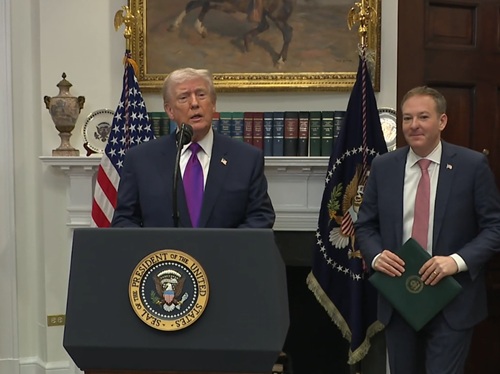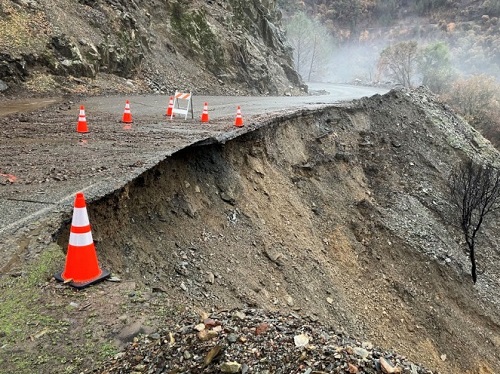The Federal Highway Administration will provide $749 million in Emergency Relief program funds to 39 states, the District of Columbia, and Puerto Rico to repair and rebuild roads and bridges damaged by catastrophic events, including extreme weather events.
[Above photo by the U.S. Forest Service]
“When natural disasters destroy vital transportation links, it impacts countless people who rely on those roads, bridges, and tunnels every day,” said Pete Buttigieg, secretary of the U.S. Department of Transportation, in a statement. “Cleanup and repairs can take years, and these funds are an important way our Department can help get families and communities moving again.”
Natural disasters and catastrophic events often require years-long recoveries, FHWA explained, which is why the majority of its Emergency Relief funding goes toward reimbursement for states, territories, federal land management agencies, and tribal governments to fix and restore roads and bridges in the aftermath of wildfires, hurricanes, flooding and other weather-related events.
That includes damage from events such as Hurricane Ian in Florida, rainstorms and wildfires throughout California, Hurricanes Irma and Maria in 2017, and flooding in and around Yellowstone Park in 2022. The Emergency Relief funding package also continues to include funding for repairs to the pedestrian bridge in Washington, D.C., over Route 295 that collapsed when a truck hit the bridge in June 2021.
FHWA added that its Emergency Relief program complements other programs funded by the $1.2 trillion Infrastructure Investment and Jobs Act or IIJA enacted in November 2021 to make the nation’s transportation infrastructure better able to withstand damage from future weather events and catastrophic events.
Specifically, those new IIJA-funded initiatives include the two Promoting Resilient Operations for Transformative, Efficient, and Cost-saving Transportation or PROTECT initiatives – one a formula and the other a discretionary grant program. FHWA noted that it recently opened applications for $848 million from the first round of the PROTECT grant program.
 Top Stories
Top Stories
EPA Withdraws 2009-Era GHG ‘Endangerment Finding’
February 13, 2026 Top Stories
Top Stories

